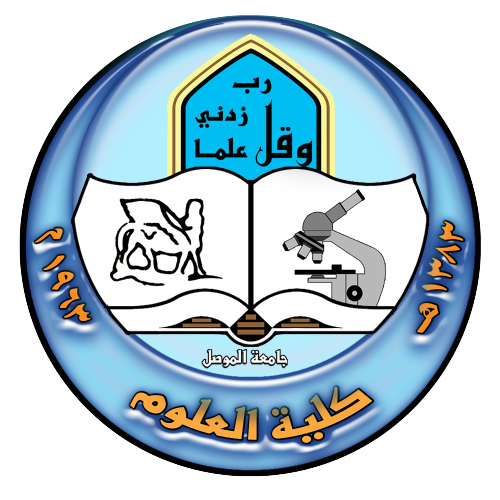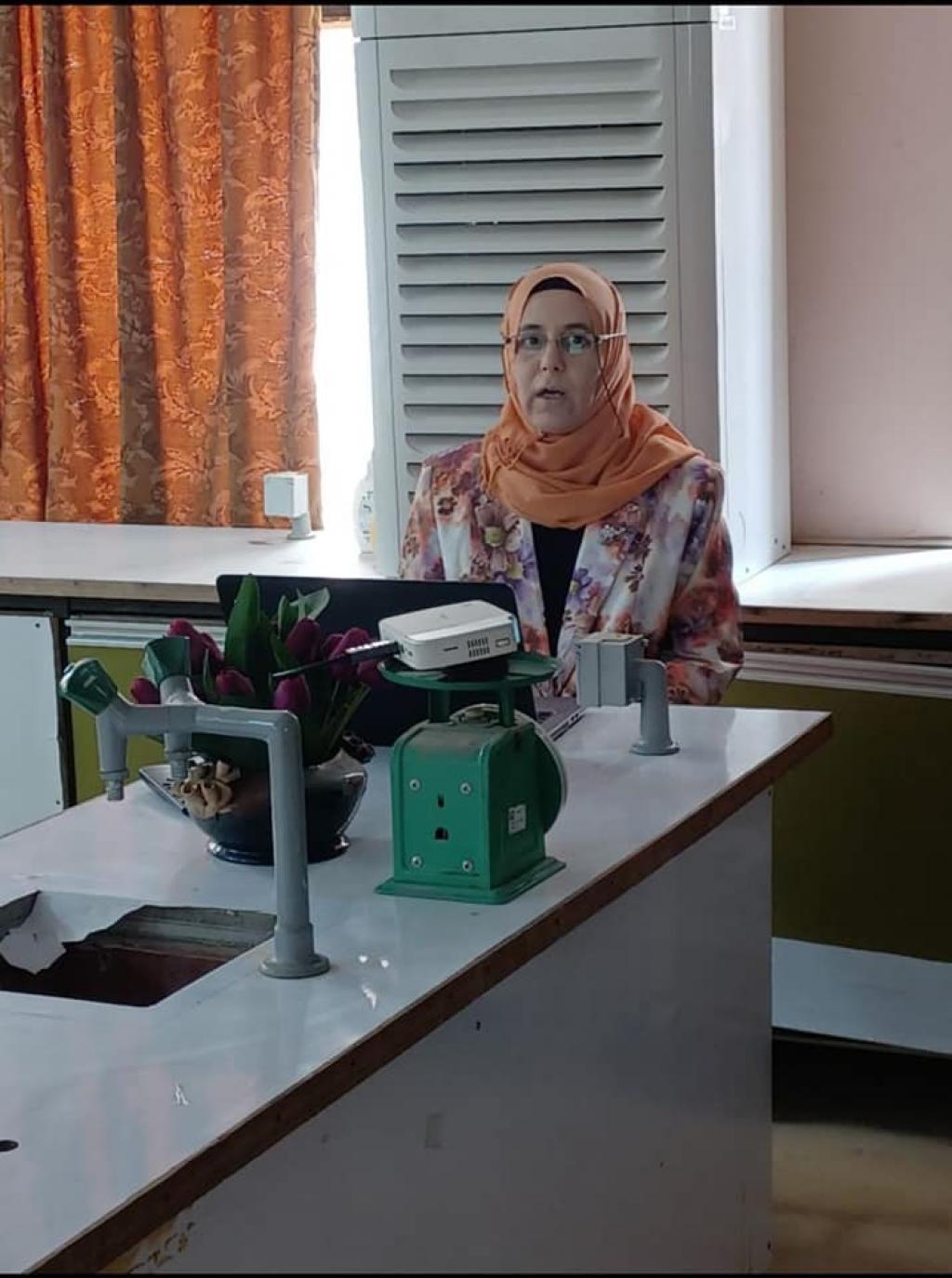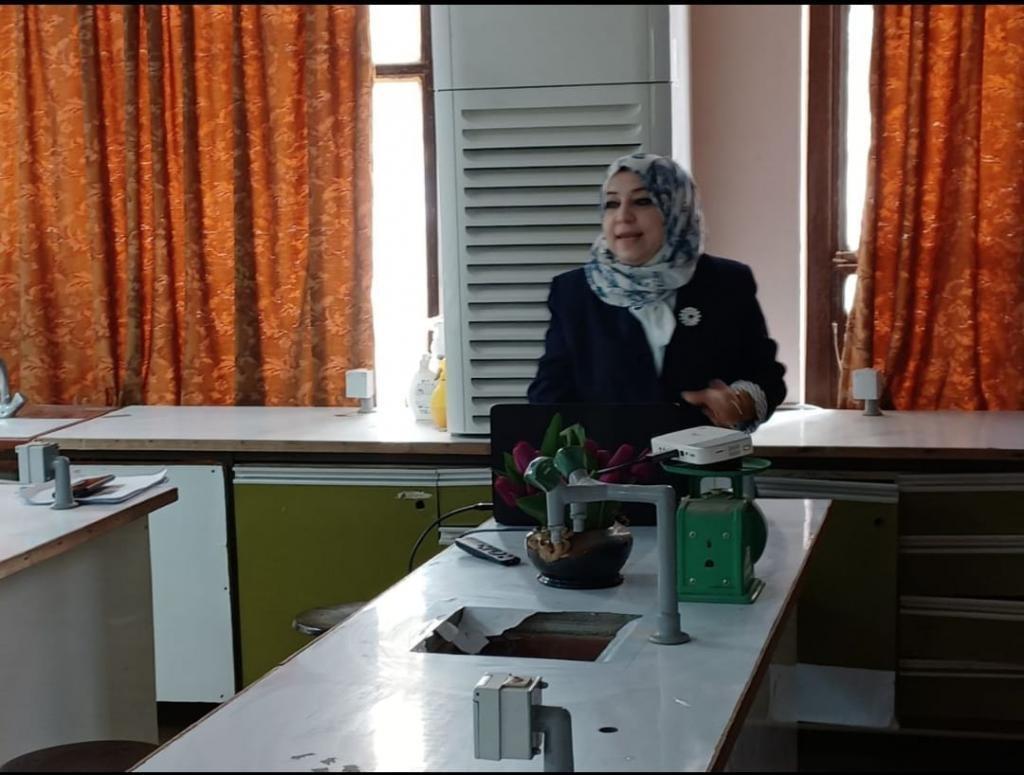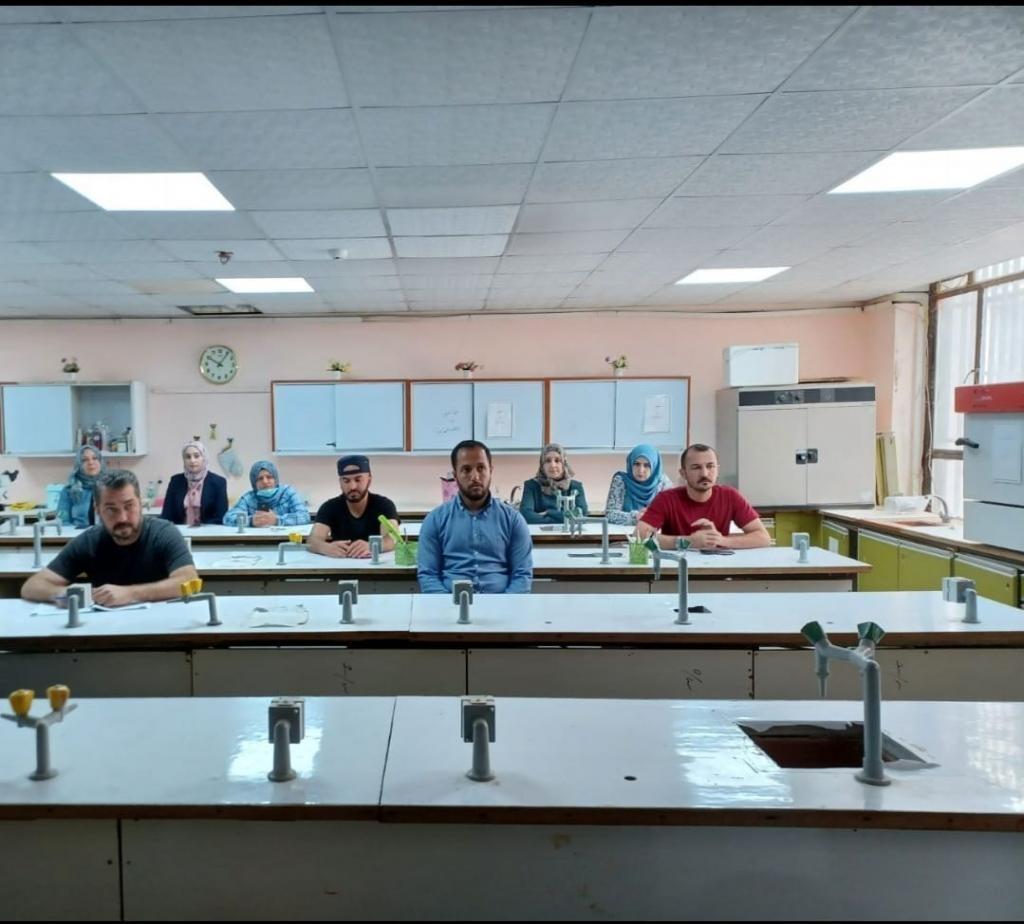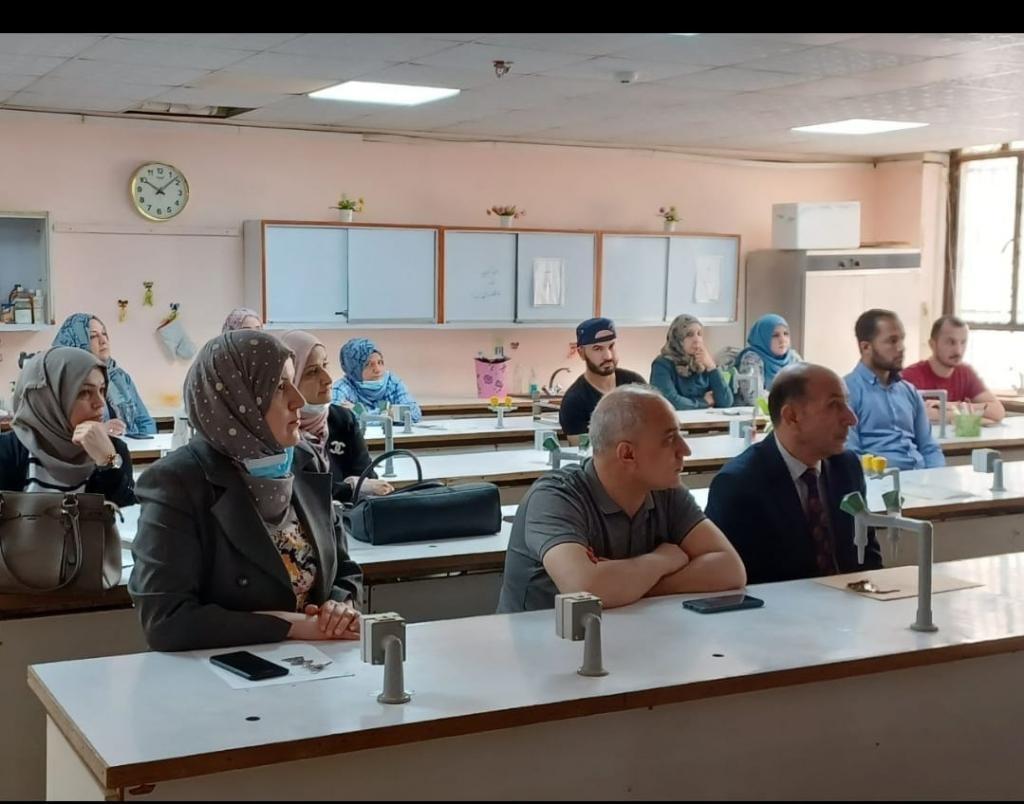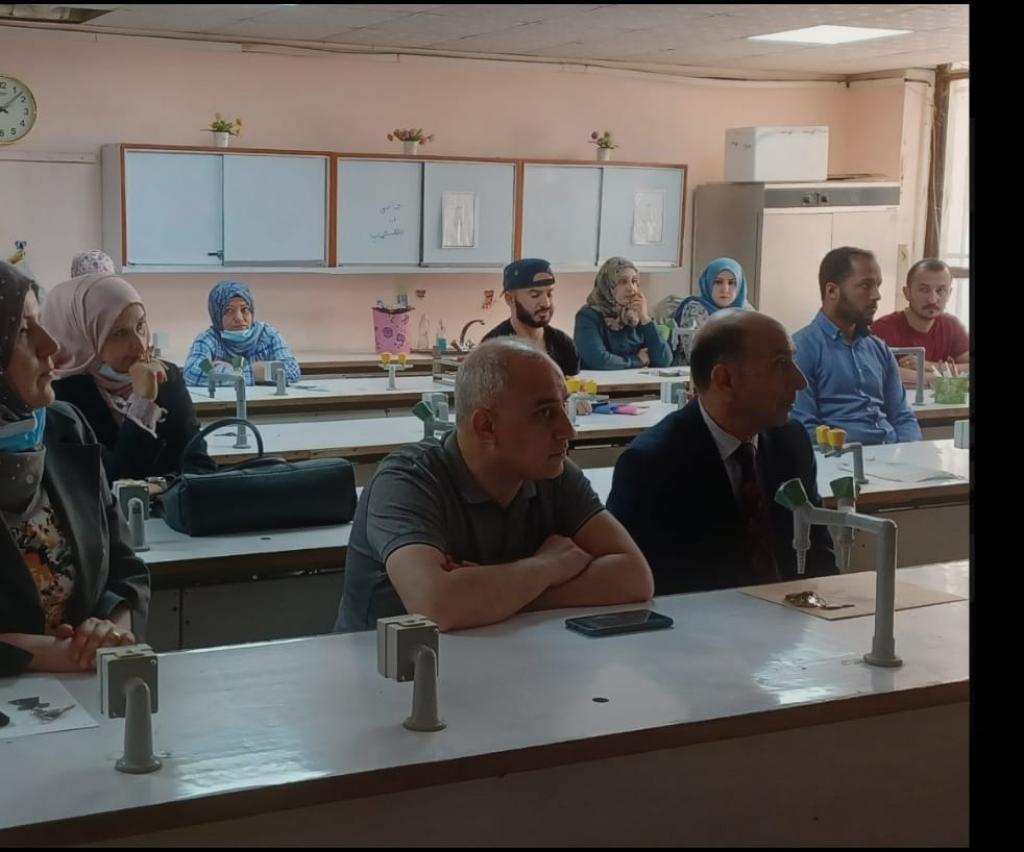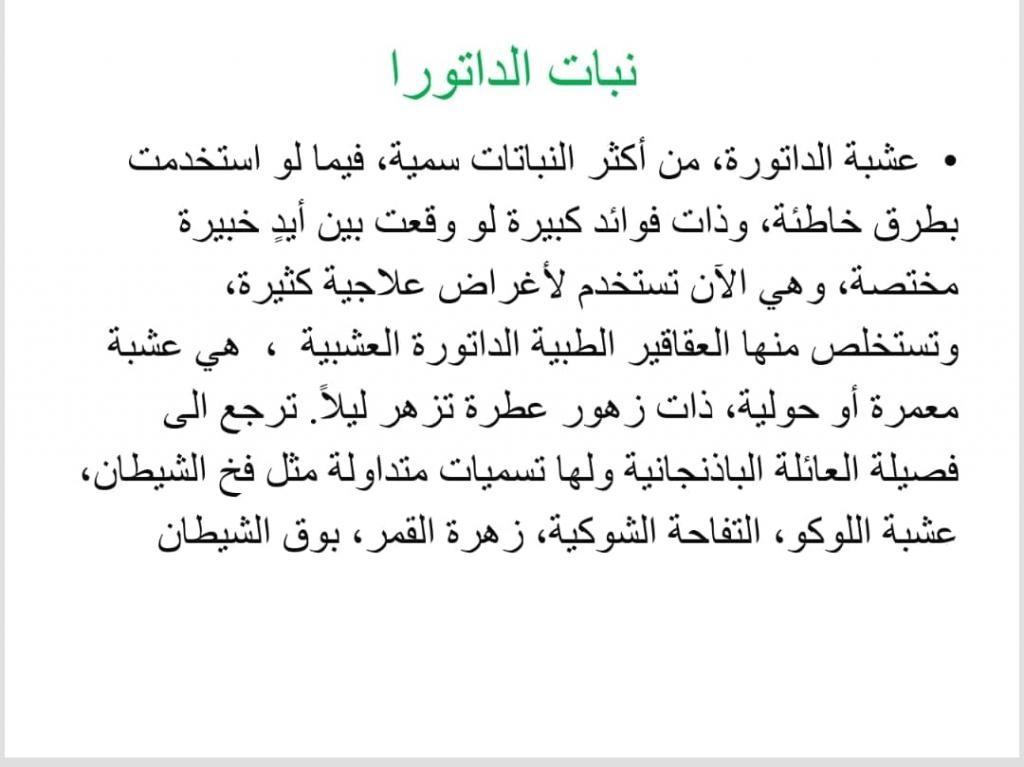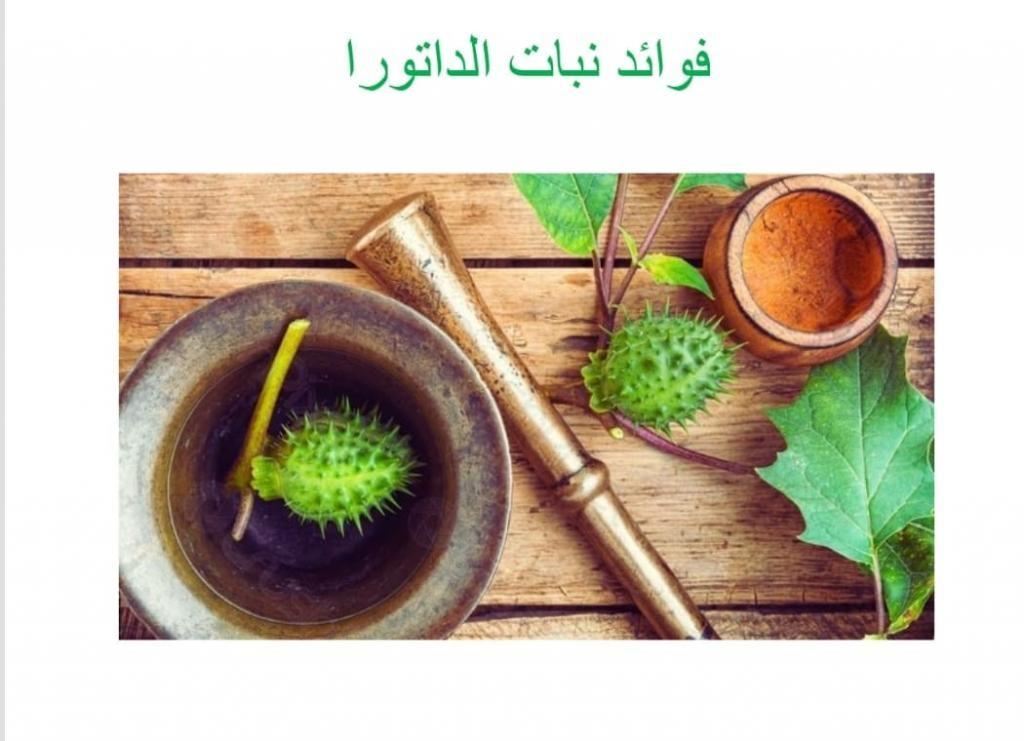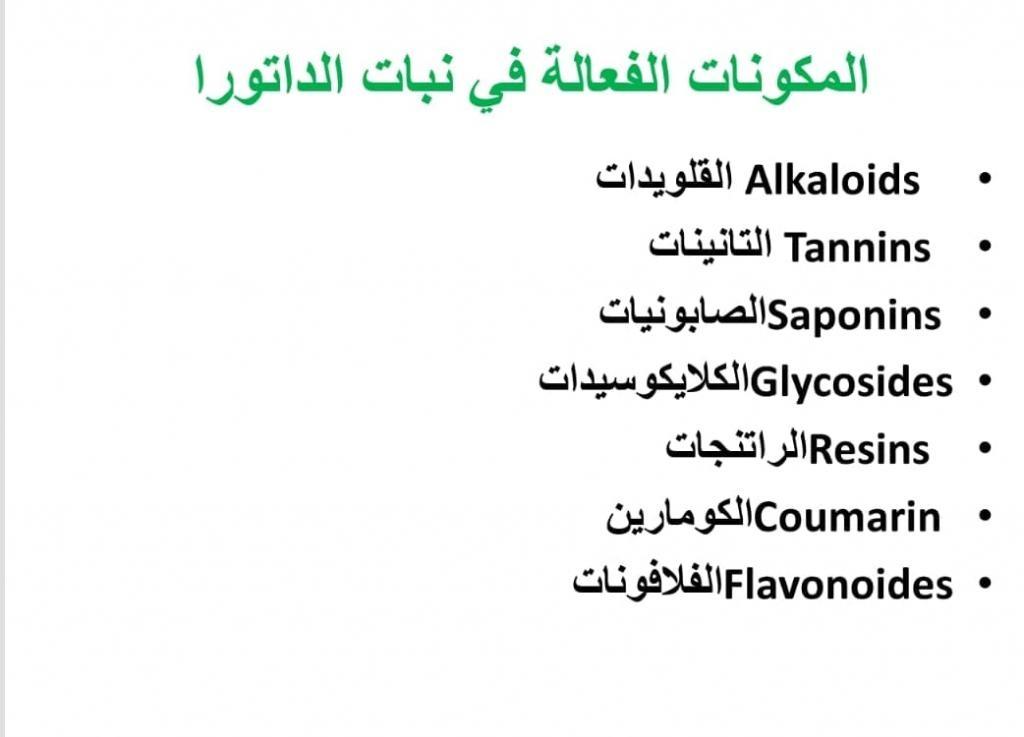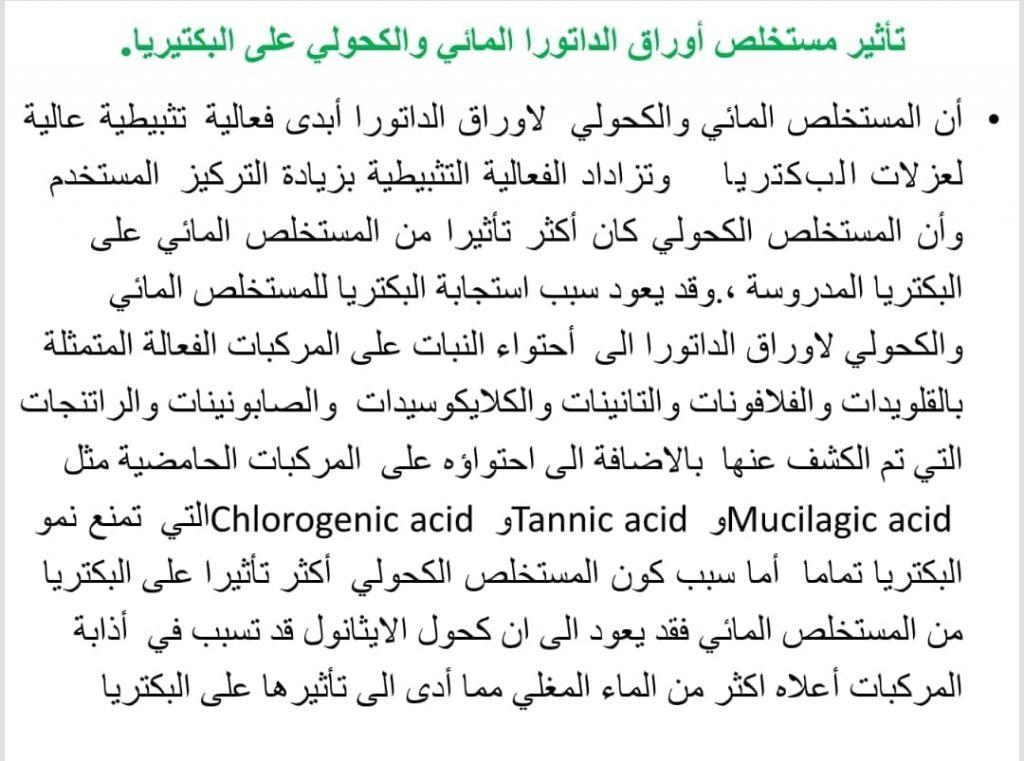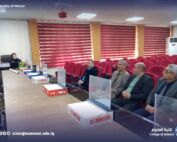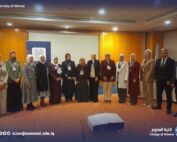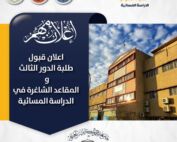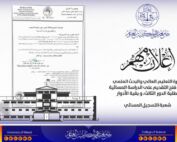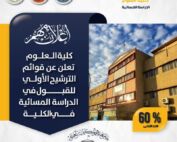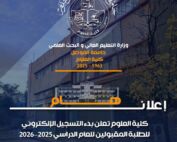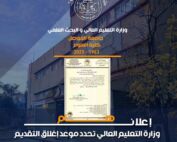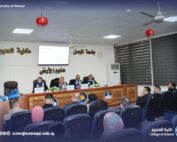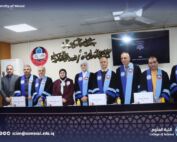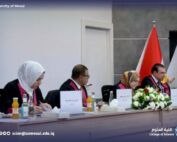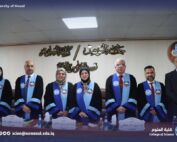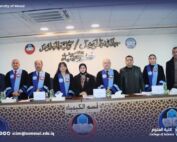28 April، 2022
Workshop on “The Effect of Datura metel on Inhibiting Bacterial Growth Associated with Burns”
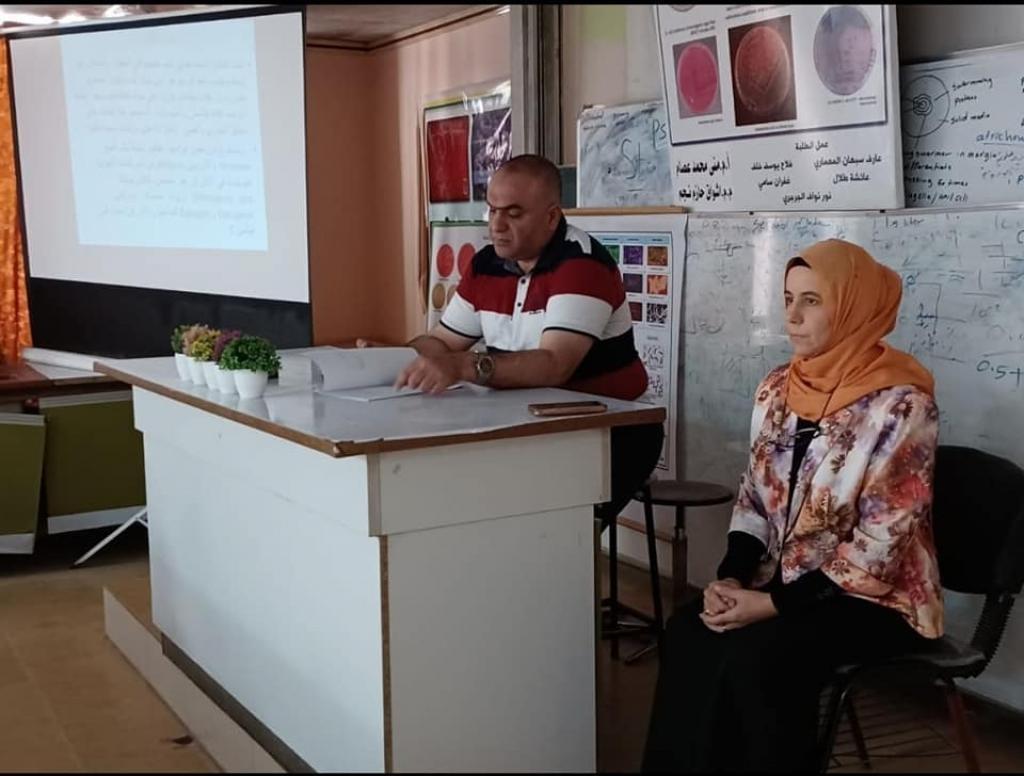
Under the patronage of the President of the University of Mosul, Prof. Dr. Kossay Kamal Al-Din Al-Ahmady and under the supervision of the Dean of the College of Sciences, Prof. Dr. Hiyam Adel Ibrahim, and the follow-up of the Head of the Department of Biology, Assistant Professor Dr. Raed Salem Al-Saffar, and within the continuing education courses, the workshop marked ( (The effect of Datura metel on inhibiting bacterial growth accompanying burns)) in the Department of Life Sciences, alternately giving lectures. M. Hanan Sami Nouri and a. M. Naglaa Abdullah Fathi in the microbiology laboratory.The workshop included a definition of the datura plant and its types, as it is considered a poisonous plant if used in wrong ways and has medicinal benefits if it falls into the hands of a specialized expert, as medicinal drugs are extracted from it. Loco, prickly apple, moonflower, devil’s trumpet), then shed light on the most bacteria accompanying burns such as Staphylococcus aureus, pseudomonas aeroginosa, klebsiella pneumoniae, E.coli and their resistance to ceftrixone, streptomycin, nali, amikacin, dixic acideudomonas and it was proven that aeruginosa is the most virulent and most virulent bacterium associated with burns because of the dyes and because of the production of biofilm and the genes carried on the plasmid. During the workshop, the therapeutic alternatives to the bacteria accompanying burns instead of the antibiotics were clarified and the effect of both the aqueous and alcoholic extract of the leaves of the Datura plant on the dominant burn bacteria, and finally the conclusions were that it is possible The use of datura leaves and fruits as drug alternatives to treat bacterial contamination that occurs to burn patients after conducting extensive studies and determining the doses As well as the efficiency of datura leaf extract in killing and inhibiting bacterial growth accompanying burns of both positive and negative types of gram dye, which is known for its resistance to antibiotics.The workshop came up with recommendations:
- Studying the efficiency of datura metal leaf extract using different organic solvents in killing and inhibiting bacterial growth associated with burns.
- Study the effect of the water and alcoholic extract of other Datura species, especially Datura stamoni.The workshop was attended by the head of the department and a number of teachers and students.Wishing all our members continued progress
